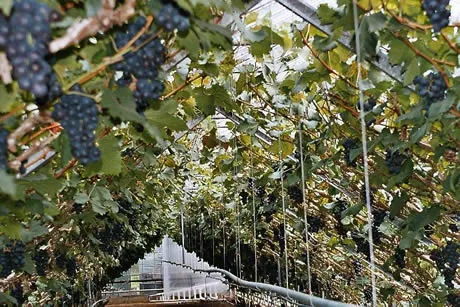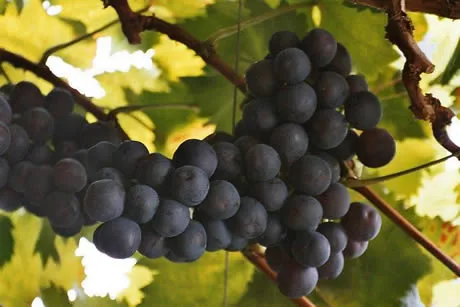The Belgian grape season gets shorter and shorter every year. "There were times we could offer them for almost ten months; nowadays, it's about two," says Francis Charlier of wholesaler Lejeune. "There's such a limited supply; we sometimes have to refuse customers."

According to this experienced trader, the main reason for Belgian grapes' predicament is simply that there are very few growers left in the grape region and sky-high heating costs. "These delicious Belgian grapes need six months to ripen in a heated greenhouse. Also, overseas competition is very stiff."
"Belgian growers are aging annually with minimal succession to continue the cultivation. I think there are currently about ten active grape growers. It will, of course, never completely disappear, but it's increasingly becoming a niche product. Is this wrong? I dare not say. The grapes sell for quite high prices, which also means no potential oversupply," Francis explains.
Lejeune works primarily with Leopold and Ribier grapes, with a few Muscats. "We have Ribiers from mid-July until late September. This year, we started with the Leopold on August 15 and will continue until about October 1. Greengrocers, certain wholesalers, and high-end market vendors are our regular clients. The quality has to be truly distinctive from the foreign product. Spanish and Italian grapes' quality has improved considerably in recent years, so they can fill the gap in the market. The Belgian grapes quality must, thus, be superior."

"I expect some changes in the future regarding both greenhouse cultivation and fruit and vegetable imports from southern European countries. Lejeune imports a lot of products between November and March from countries like Spain. Things could change there. Will prices keep up with the increased costs? Will consumers still be able to pay those prices, considering their reduced purchasing power? Will local and overseas growers decide to grow other crops? These questions remain unanswered in these uncertain times," Francis concludes.
For more information:
NV Lejeune
Warehouses 22/26, 3 Strijbroek
2860, Sint Katelijne Waver, Belgium
Tel.: +32 (0) 153 16 931
Email: info@nvlejeune.be
Website: www.nvlejeune.be
